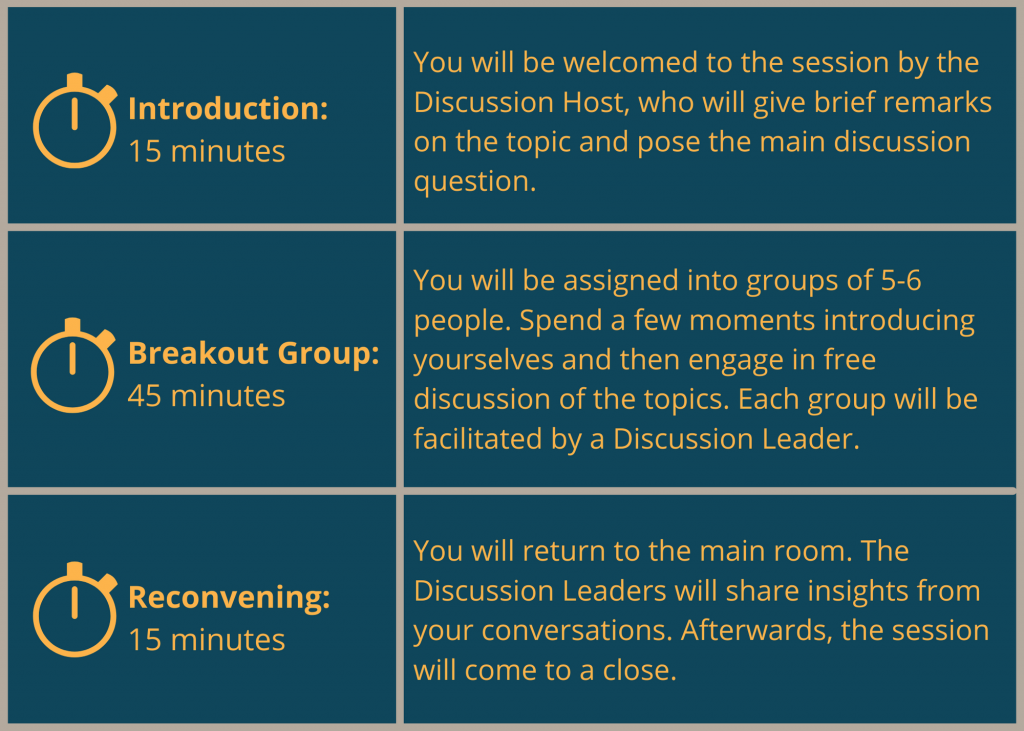December 2021 FOREIGN AFFAIRS DISCUSSION GROUPS
As we navigate this complex time in history, Network 20/20 is proud to create high-quality programming that exposes our participants to new world views and innovative policy solutions. Going beyond traditional briefings, we are delighted to offer a new program designed to give our participants an opportunity to voice their own ideas and engage with a diverse group of individuals.
Network 20/20’s Foreign Affairs Discussion Groups are designed to give non-foreign policy experts as well as those with background knowledge the opportunity to voice their own ideas on select topics in international relations and engage with a group of individuals from across the U.S. and world.
Our next Foreign Affairs Discussion Group will focus on issues in the Latin America region. Based on the votes of the participants, one of the following topics will be discussed:
Whether policy expert or international affairs novice, you are invited to join us for our Foreign Affairs Discussion Group on December 6th at 12 PM EST to meet your peers and dive into the latest happenings around the world!
DISCUSSION HOST:
 Dr Christopher Sabatini is senior fellow for Latin America at Chatham House, and was formerly a lecturer in discipline in the School of International and Public Affairs (SIPA) at Columbia University. Chris is also on the advisory boards of Harvard University’s LASPAU, the Advisory Committee for Human Rights Watch’s Americas Division, and of the Inter-American Foundation. He is also an HFX Fellow at the Halifax International Security Forum. He is a frequent contributor to policy journals and newspapers and appears in the media and on panels on issues related to Latin America and foreign policy. Chris has testified multiple times before the U.S. Senate and the U.S. House of Representatives. In 2015, Chris founded and directed a new research non-profit, Global Americas, and edited its news and opinion website. From 2005 to 2014 Chris was senior director of policy at the Americas Society and Council of the Americas (AS/COA) and the founder and editor-in-chief of the hemispheric policy magazine Americas Quarterly (AQ). At the AS/COA, Dr. Sabatini chaired the organization’s rule of law and Cuba working groups. Prior to that, he was director for Latin America and the Caribbean at the National Endowment for Democracy, and a diplomacy fellow with the American Association for the Advancement of Science, working at the US Agency for International Development’s Center for Democracy and Governance. He provides regular interviews for major media outlets and has a Ph.D. in Government from the University of Virginia.
Dr Christopher Sabatini is senior fellow for Latin America at Chatham House, and was formerly a lecturer in discipline in the School of International and Public Affairs (SIPA) at Columbia University. Chris is also on the advisory boards of Harvard University’s LASPAU, the Advisory Committee for Human Rights Watch’s Americas Division, and of the Inter-American Foundation. He is also an HFX Fellow at the Halifax International Security Forum. He is a frequent contributor to policy journals and newspapers and appears in the media and on panels on issues related to Latin America and foreign policy. Chris has testified multiple times before the U.S. Senate and the U.S. House of Representatives. In 2015, Chris founded and directed a new research non-profit, Global Americas, and edited its news and opinion website. From 2005 to 2014 Chris was senior director of policy at the Americas Society and Council of the Americas (AS/COA) and the founder and editor-in-chief of the hemispheric policy magazine Americas Quarterly (AQ). At the AS/COA, Dr. Sabatini chaired the organization’s rule of law and Cuba working groups. Prior to that, he was director for Latin America and the Caribbean at the National Endowment for Democracy, and a diplomacy fellow with the American Association for the Advancement of Science, working at the US Agency for International Development’s Center for Democracy and Governance. He provides regular interviews for major media outlets and has a Ph.D. in Government from the University of Virginia.
Register for the December Foreign Affairs Discussion Group
Structure of the Discussion Groups
Each session of the Foreign Affairs Discussion Groups is designed to foster rigorous discussion as well as to create an opportunity to meet and engage with other curious individuals. Prior to each session, participants will receive suggested reading/viewing materials about the topic and a list of participants with (optional) professional contact information. We encourage you to get to know your fellow participants and partake in thoughtful debate.
*To maintain an intimate discussion, we will limit the group to 30 participants.

Selection Process
To maintain a rich discussion experience, the Foreign Affairs Discussion Groups is limited to 30 participants. Priority access will be given to Network 20/20 members. The rest of the group will be accepted on a first-come-first-served basis with the caveat that we will ensure a group with diverse nationalities, genders, and ages.
Discussion Leader
Each breakout room will have one Discussion Leader to keep the conversation moving and to ensure everyone has a chance to speak. Discussion Leaders do not have to be experts in the topic of that session, but rather curious individuals who can encourage a meaningful conversation by ensuring that everyone who wishes has a chance to speak and by prompting conversation if needed. If you would like to be a Discussion Leader, please indicate this preference on the designated box on the registration form. Those who indicate a preference to be a Discussion Leader will be prioritized, but not guaranteed, to join the Foreign Affairs Discussion Groups.
Discussion Groups Etiquette
Network 20/20’s Foreign Affairs Discussion Groups will follow the Chatham House Rules. This rule is designed to encourage an open and trusting environment for conversation during the session. Following the discussion, feel free to share the points raised in the Discussion Groups with others, but please keep the identity of the commenters anonymous.
“When a meeting, or part thereof, is held under the Chatham House Rule, participants are free to use the information received, but neither the identity nor the affiliation of the speaker(s), nor that of any other participant, may be revealed.”
In order to foster engaging discussions, please be mindful of the amount of time you speak in each group. We seek to create a welcoming environment for all our participants, therefore we encourage you to allow time for every member of your group to speak. Discussion leaders have the authority to limit your speaking intervals to 3 minutes each.
Please remember to be conscientious and respectful of those around you, as we all work together to create a safe, virtual space built upon the principles of mutual respect, inclusivity, diversity, and zero tolerance for discrimination of any kind.
Some Zoom Etiquette Tips

